Business
Fuel Scarcity Looms In Nigeria As PETROAN Announces Date For Plans Strike Over Alleged Dangote Monopoly

PETROAN has threatened a three-day suspension of fuel sales over alleged monopolistic practices in the downstream oil sector
They accused Dangote Refinery of adopting aggressive business strategies that could cause job losses
The association urged Nigerians not to be misled by short-term incentives that could eventually replicate the monopolistic scenario seen in the cement industry.
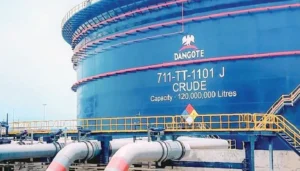

The Petroleum Products Retail Outlets Owners Association of Nigeria (PETROAN) has issued a three-day notice of suspension of fuel lifting and sales, scheduled to start on Tuesday, September 9, 2025, in protest against alleged monopolistic practices in the downstream petroleum sector.
PETROAN had previously cautioned against Dangote’s forward integration strategy, arguing that it could trigger massive job losses and entrench market dominance.
The association also expressed worry over the company’s acquisition of 4,000 CNG-powered tankers, warning that the move might threaten the survival of current truck drivers and transport operators.
In a statement signed by the association’s National PRO, Dr. Joseph Obele, and released in Abuja, PETROAN’s President, Dr. Billy Gillis-Harry, emphasised that the planned action would be peaceful and within the law.
He noted that the strike is aimed at safeguarding fair competition, defending workers’ welfare, and stabilising fuel prices across the country.
Dr. Gillis-Harry called on President Bola Tinubu, the Minister of State for Petroleum (Oil), the NNPC Group CEO, the Chief Executive of NMDPRA, the DG of DSS, and the Inspector-General of Police to urgently step in to prevent severe hardship for citizens.
He added that since PETROAN pump attendants are registered under NUPENG, they would not be at work during the strike, warning station owners against penalising their staff.
The association expressed strong concerns over the business approach of Dangote Refinery, warning that unchecked dominance could force private depot operators, modular refiners, marketers, and truck owners out of business, thereby fueling unemployment and economic instability.
PETROAN urged Nigerians not to be misled by short-term incentives that could eventually replicate the monopolistic scenario seen in the cement industry. Following an emergency meeting, the association resolved to continue consultations until Monday.
If no progress is made, all member outlets nationwide will commence the strike on Tuesday morning, with a 120-man compliance team deployed to ensure order and safeguard facilities.
PETROAN reiterated its role as a key stakeholder in the oil and gas sector and pledged to work with other players to encourage fair competition, protect jobs, and create an enabling environment for sustainable industry growth and economic benefits.
Business
Black Market Naira To Dollar Exchange Rate Today 12th January 2026

What is the Dollar to Naira Exchange rate at the black market, also known as the parallel market (Aboki fx)?
You can swap your dollar for Naira at these rates.
How much is a dollar to naira today in the black market?
The exchange rate for a dollar to naira at Lagos Parallel Market (Black Market) players buy a dollar for N1490 and sell at N1505 on Sunday, 11th January 2026 according to sources at Bureau De Change (BDC).
Black Market Exchange Rate Today 12th January, 2026
Buying Rate N1485
Selling Rate N1500
The exchange rate between the US dollar (USD) and the Nigerian naira (NGN) which rate we have given above; is a topic of high constant interest for people who are Nigerian and businesses and policymakers in Nigeria.
This rate of dollars to naira exchange rate influences not only the cost of imported goods but also the cost of travel, international education, and even local prices of certain commodities.
Please note that the Central Bank of Nigeria (CBN) does not recognize the parallel market (black market), as it has directed individuals who want to engage in Forex to approach their respective banks.
Business
BREAKING: Petrol Depot Owners Crash Prices To Cheapest; Details Emerge
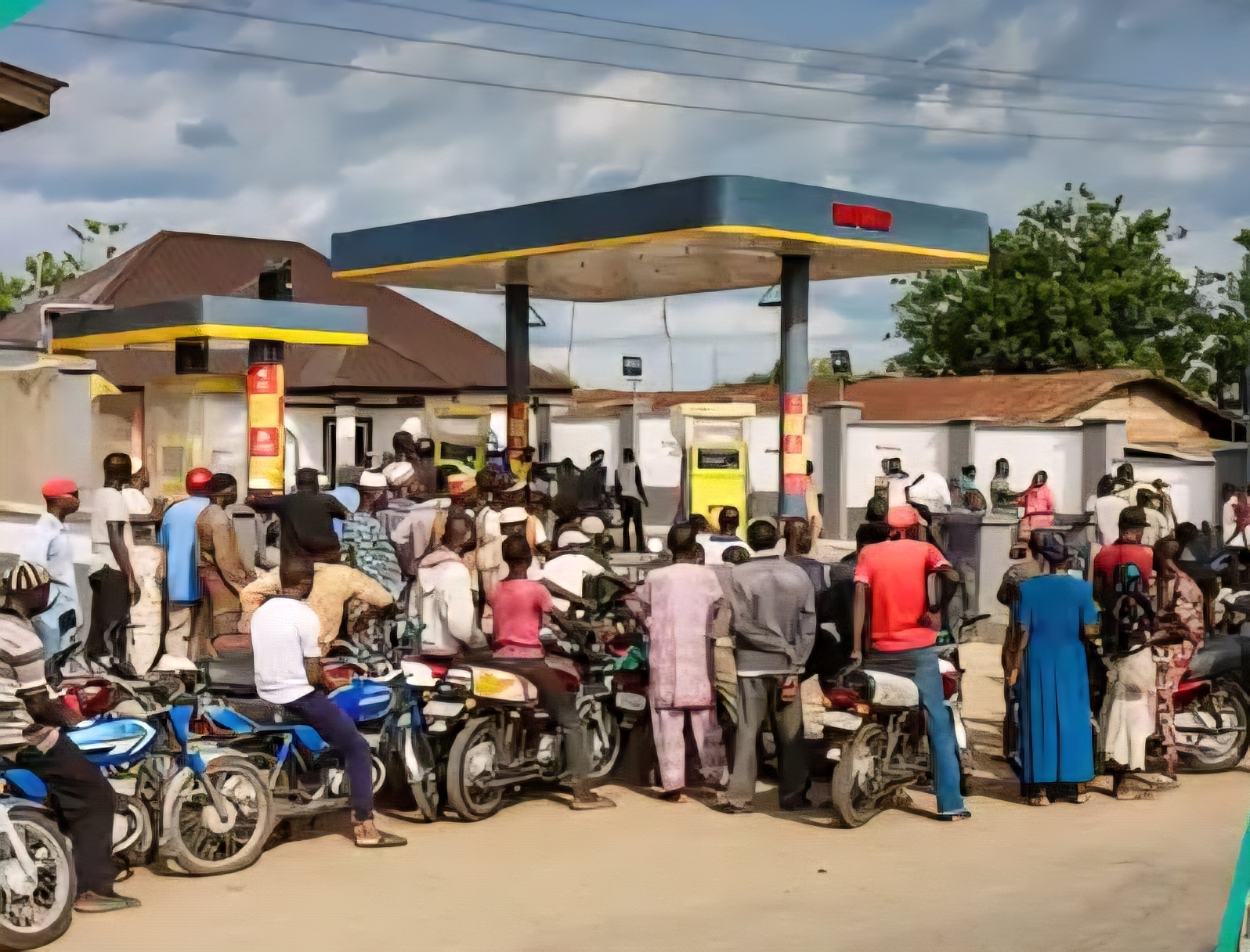
Petrol prices at Nigerian depots have dropped to their lowest levels in months as intense competition grips the downstream market, following the apparent collapse of the fuel supply agreement between the Dangote Petroleum Refinery and independent marketers.
Fresh findings show that depot owners have slashed ex-depot prices to as low as N710 per litre, a sharp reversal from the steep hikes recorded just weeks earlier.,
In the first week of January 2026, depot owners sharply increased gantry prices after reports emerged that the Dangote Refinery had shut down its petrol production unit for maintenance.
Although the refinery denied the reports, the speculation was enough to jolt the market.
Depot prices surged, and the increases quickly filtered through to filling stations nationwide.
Independent marketers raised gantry prices from around N720 per litre to over N800 per litre, with analysts noting that depot operators were exploiting uncertainty surrounding Africa’s largest refinery.
Depot owners reverse course as competition intensifies
The price spike, however, has proven short-lived.
Checks reveal that depot owners have now reversed course, cutting prices aggressively to stay competitive with Dangote Refinery’s pricing structure, especially as fresh fuel imports enter the Nigerian market.
Data from PetroleumPriceNG shows that several major depots reduced prices significantly in recent days.
As of Sunday, January 11, 2026, ShellPlux sold petrol at N710 per litre, MAO at N715, while A.Y.M.
Falling crude oil prices add more pressure
Energy experts say global oil market dynamics are also contributing to the decline in local petrol prices.
“Crude oil is currently trading between $50 and $60 per barrel in the international market,” energy policy analyst Adeola Yusuf told Legit.ng.
According to him, ongoing geopolitical tensions involving Venezuela and Iran have pushed crude prices lower, with direct implications for refined fuel costs.
“Crude oil is often used as a political tool and is highly sensitive to geopolitical developments. When prices drop, refined product prices usually follow, especially in domestic markets,” Yusuf explained.
Business
Good News: Cooking Gas Prices Drop As LPG Supply Improves Across Nigeria
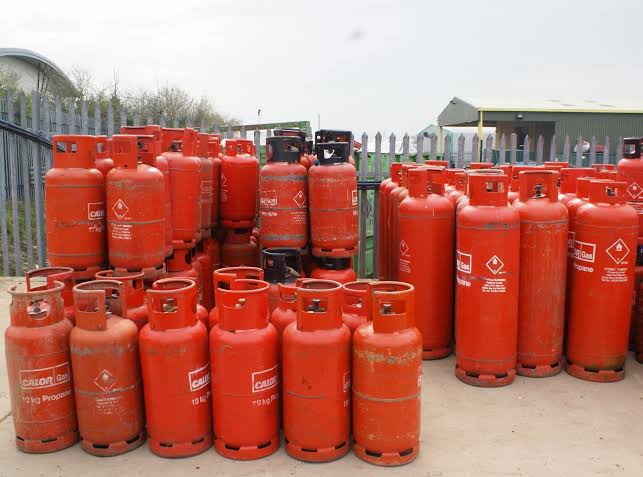
Prices of liquefied petroleum gas (LPG), commonly known as cooking gas, are crashing in several parts of the country as retailers report improved supplies.
According to a market survey by PUNCH, retailers and consumers confirmed that prices have dropped and the product has become more available across the country.
This development follows months of scarcity, which led to a nationwide hike in prices. The scarcity peaked in September 2025.
Consumers in Lagos, Ogun, Oyo and other states confirmed that they purchased cooking gas within the N1,050 to N1,400 range. Some major marketers were also reported to be selling directly to consumers at around N900 per kilogramme.
For many households, the current prices represent a significant improvement from the sharp increases recorded last year, when LPG prices surged after a dispute involving the Dangote refinery and the Petroleum and Natural Gas Senior Staff Association of Nigeria (PENGASSAN) led to the shutdown of some gas facilities.
Despite the improvement, several consumers said they were hopeful that prices would fall below N1,000 per kilogramme in the new year, arguing that lower costs are critical to promoting clean cooking and reducing reliance on firewood and kerosene.
Speaking on the situation, the National Chairman of the Liquefied Petroleum Gas Retailers branch of the Nigeria Union of Petroleum and Natural Gas Workers (NUPENG), Ayobami Olarinoye, said the LPG market had become relatively stable, with increased supply reaching Lagos.
According to Olarinoye, some off-takers are now receiving gas in Apapa, Lagos, helping to ease availability challenges experienced in previous months.
He explained that retail prices at street-level outlets currently range between N1,300 and N1,400 per kilogramme, noting that costs vary based on neighbourhoods, transportation and logistics.
Olarinoye added that prices could be lower at filling stations and gas plants, where operational and distribution costs are reduced.
He further disclosed that retailers currently purchase LPG from major marketers at prices between N960 and N1,050 per kilogram, depending on the supplier. According to the NUPENG official, sellers offering LPG below N1,000 per kilogramme are typically major dealers who own their own plants and sell directly to end users and do not distribute to retailers.
-
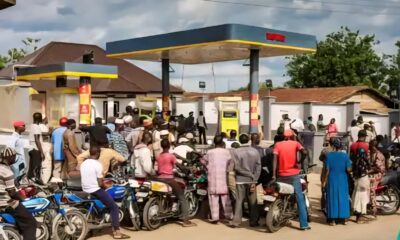
 Business19 hours ago
Business19 hours agoBREAKING: Petrol Depot Owners Crash Prices To Cheapest; Details Emerge
-

 News2 days ago
News2 days agoBuhari’s Ex-Minister Pantami Breaks Silence Over Alleged Wedding Plan With Aisha Buhari
-
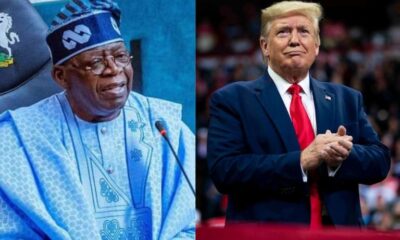
 News1 day ago
News1 day ago“Do Not Test Trump’s Resolve”: US Issues Fresh Threat To Nigeria
-

 Entertainment1 day ago
Entertainment1 day agoSO SAD: Actress and Content Creator Sunshine D!es After Surgery; Details of Last Moment Trends
-
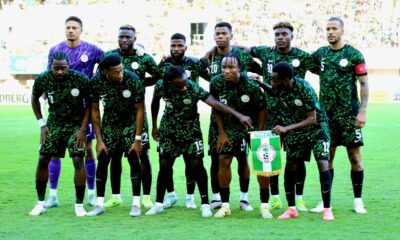
 Sports2 days ago
Sports2 days agoAFCON: Nigerian Billionaire Splashes Dollars On Super Eagles
-

 Lifestyle2 days ago
Lifestyle2 days agoChimamanda: Heartbreaking Details About What Killed Author’s Late Son Emerge
-
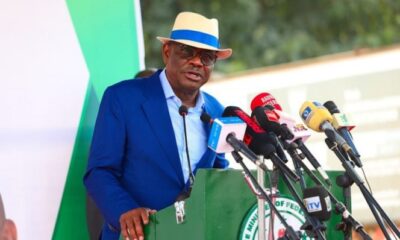
 Politics7 hours ago
Politics7 hours agoFCT Minister Wike Reacts To Call For Tinubu To Sack Him
-

 Business3 hours ago
Business3 hours agoBlack Market Naira To Dollar Exchange Rate Today 12th January 2026





